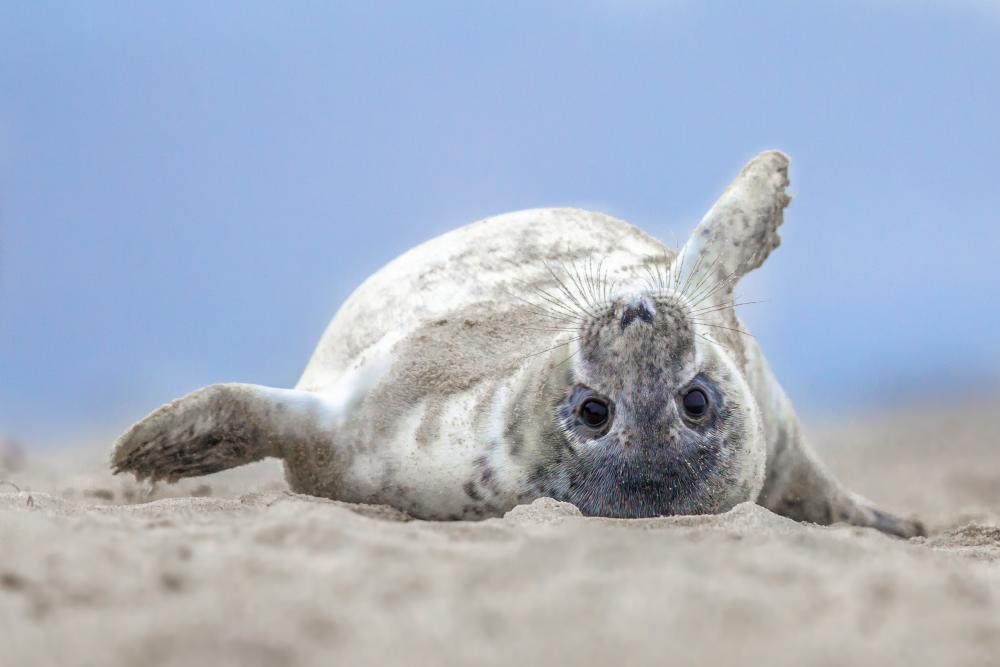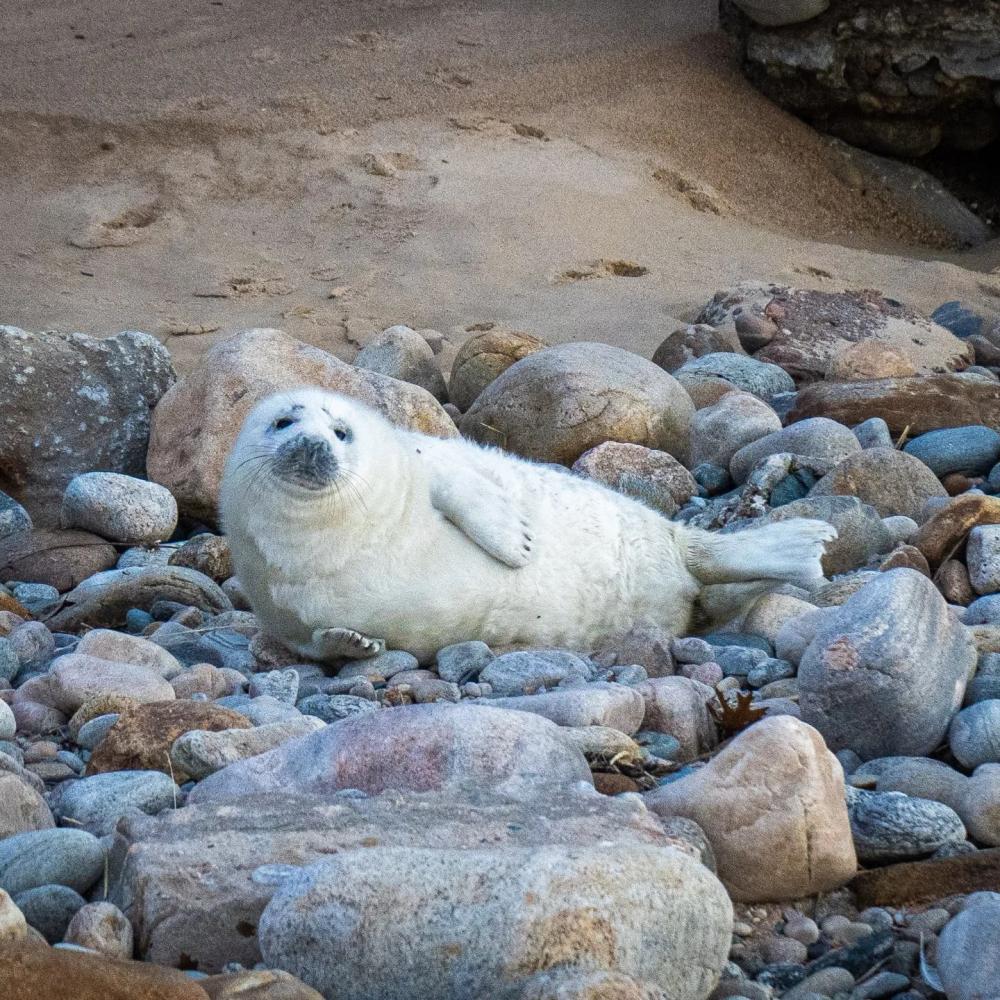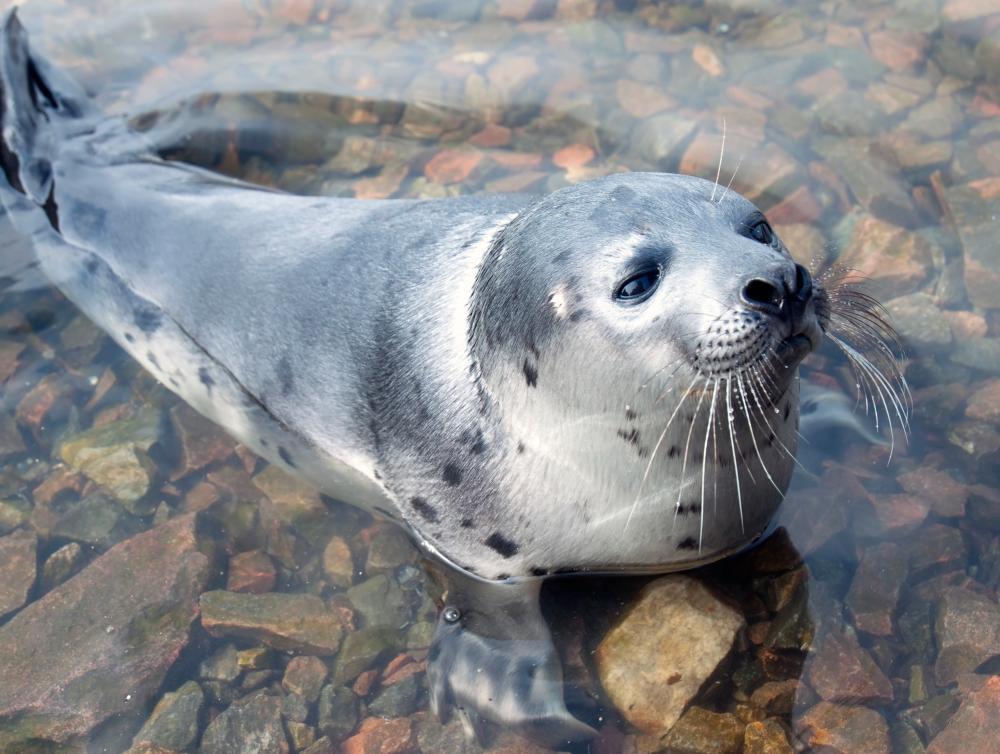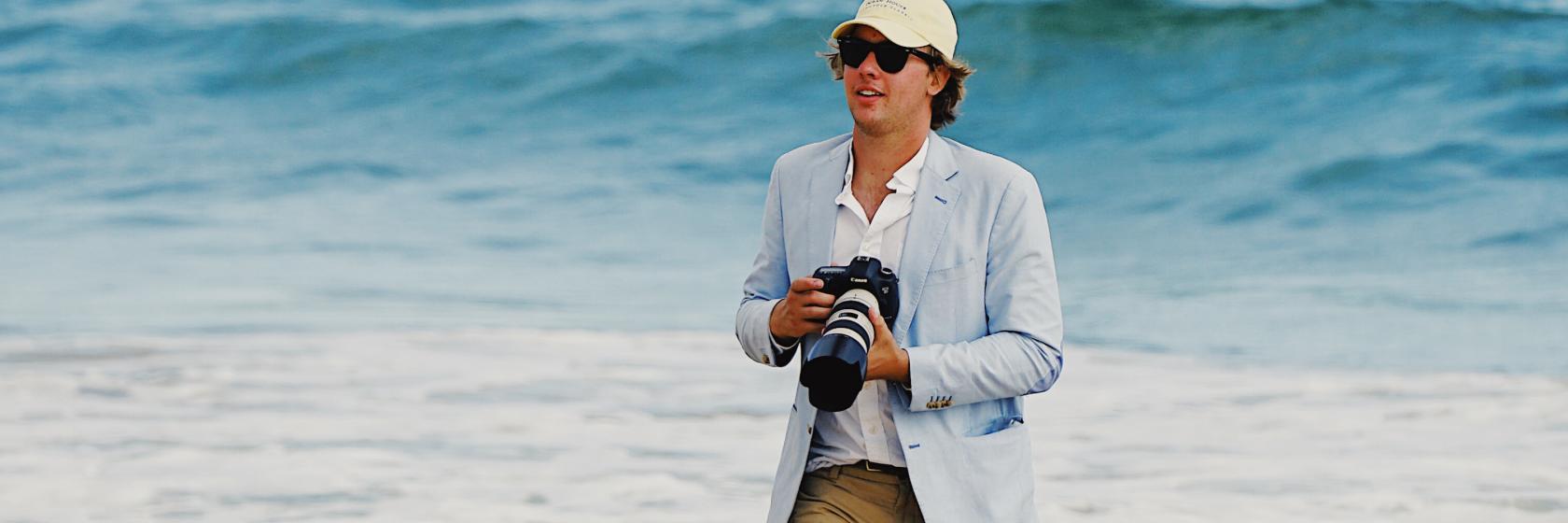Take a walk in South County and you are likely to see the Official State Marine Mammal of Rhode Island. The harbor seal, those cute, smiling, whiskered mammals were designated the official state marine mammal in 2016, and they are now a very common sight along RI waters.
Harbor seals, like all marine mammals, are protected under the United States Marine Mammal Protection Act of 1972. They grow to about six feet long and up to 350 pounds, a quarter of which is insulating blubber. They eat fish, shellfish, and crustaceans, they have a lifespan of 25-30 years, and can remain underwater as long as 28 minutes and swim at speeds up to 15 knots.

Fortunately for wildlife enthusiasts it is completely normal and natural to see seals hauled out on South County shores. They are semi-aquatic, spending some of their time in the water and some on land. They haul out on rocks or the shore to warm and dry in the sun, molt, give birth, or sometimes just to rest.
Harbor Seals are the most commonly seen seals in South County. You can spot them bobbing in the water, laying on the beach and rocks in Weekapaug or Watch Hill. Large numbers of seals are frequently seen at Rome Point. Visit Rome Point Seals for detailed info on where, when, and how to view them.

South County can also be home to the Harp Seal. Harp Seals are known for their brilliant white pups. Some adults and juveniles stray south of their range into New England during winter. They are occasionally seen on the beaches and shoreline in and around Narragansett Bay. Adult harp seals are easily recognized by their distinctive color pattern. An adult has a pale white to silvery-gray body with a black face and a black inverted V- or harp-shaped marking on the back. While harbor seals are residents to our waters, harp seals are merely visitors from their home waters much farther to the north. Their scientific name, Pagophilus groenlandicus, translates as “ice-lover from Greenland.” Harp seals are found only in the North Atlantic and Arctic. If you see a Harp Seal here it will most likely be a solitary juvenile.

Be mindful when you spot a seal that they are very sensitive to human disturbance. Agile in the water they are clumsy on land and small disruptions cause them to abruptly leave their haul-out sites and flee to the safety of the water. The quick transition from rest to panic may severely stress seals. Seals haul out to rest and conserve energy and any time they are disturbed, even unintentionally, there is a negative impact on them. An isolated incident may in fact be one of several disturbances throughout the day. You should know that if seals leave their haul-out site due to any type of human disturbance, it is considered a breach of the Marine Mammal Protection Act of 1972.The act prohibits touching, feeding, harassing or otherwise disturbing seals or other marine mammals.








